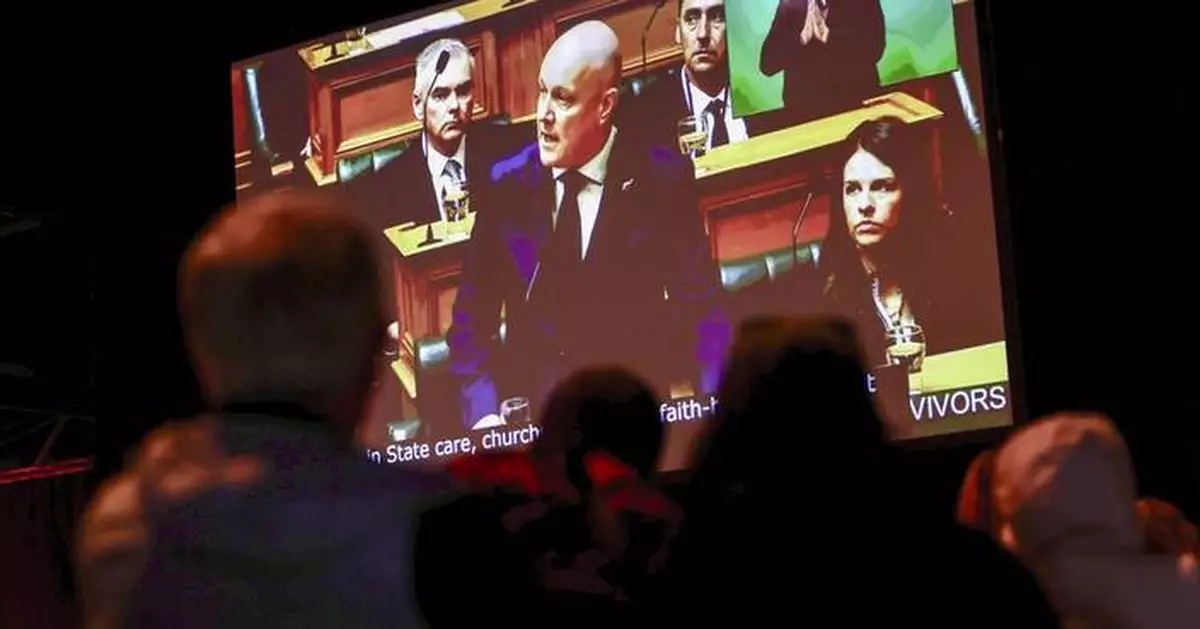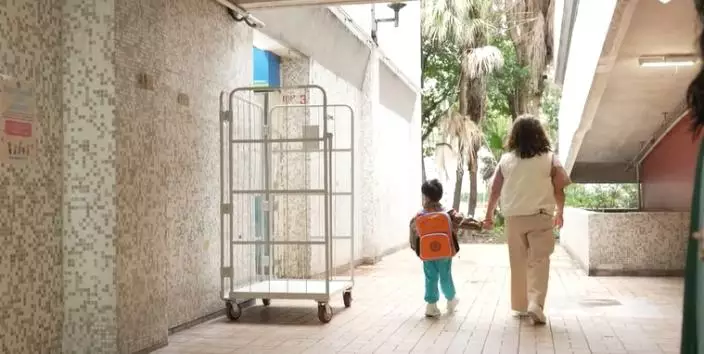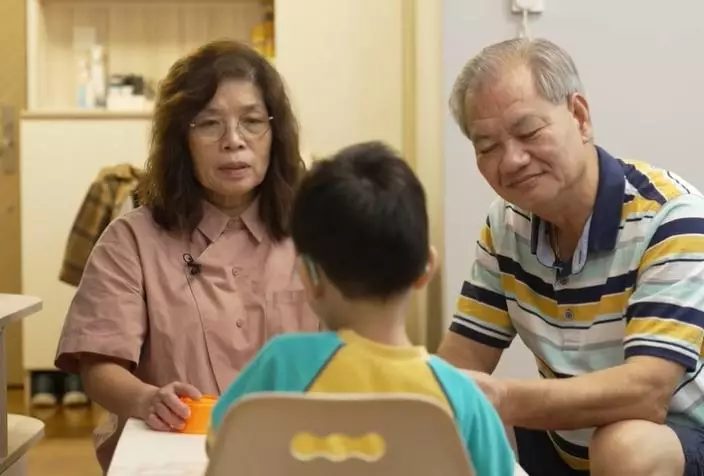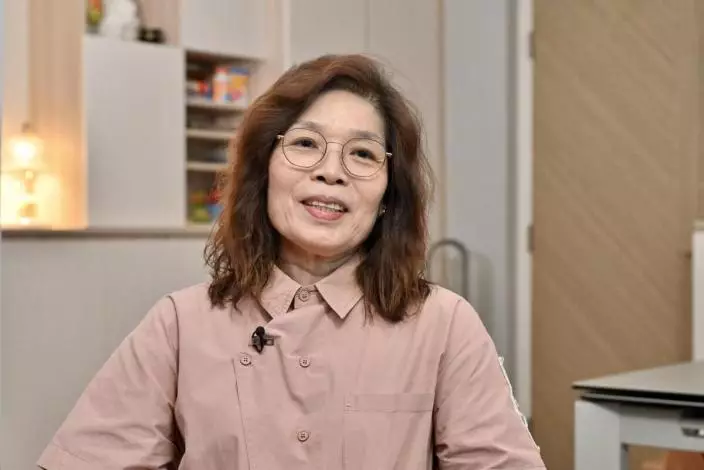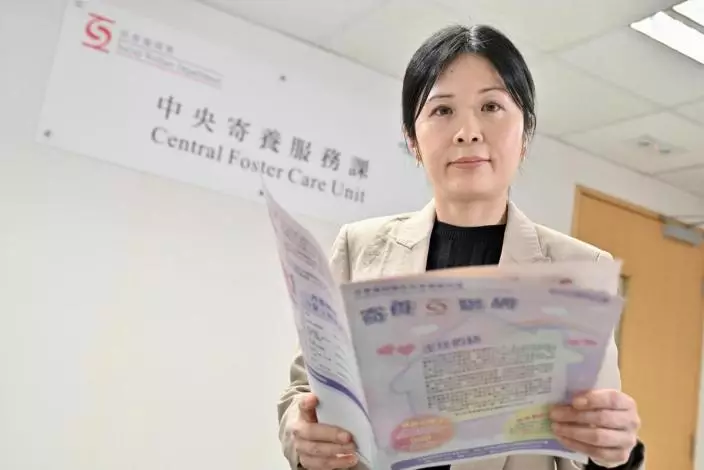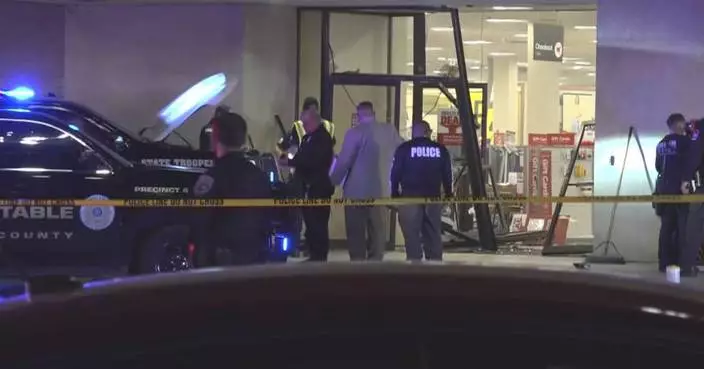WELLINGTON, New Zealand (AP) — New Zealand's Prime Minister Christopher Luxon made a “formal and unreserved” apology in Parliament on Tuesday for the widespread abuse, torture and neglect of hundreds of thousands of children and vulnerable adults in care.
“It was horrific. It was heartbreaking. It was wrong. And it should never have happened,” Luxon said, as he spoke to lawmakers and a public gallery packed with survivors of the abuse.
An estimated 200,000 people in state, foster and faith-based care suffered “unimaginable” abuse over a period of seven decades, a blistering report released in July said at the end of the largest inquiry ever undertaken in New Zealand. They were disproportionately Māori, New Zealand’s Indigenous people.
“For many of you it changed the course of your life, and for that, the government must take responsibility,” Luxon said. He said he was apologizing for previous governments too.
In foster and church care — as well as in state-run institutions, including hospitals and residential schools — vulnerable people “should have been safe and treated with respect, dignity and compassion," he added. “But instead, you were subjected to horrific abuse and neglect and in some cases torture.”
The findings of the six-year investigation believed to be the widest-ranging of comparable probes worldwide were a “national disgrace,” the inquiry's report said. New Zealand's investigation followed two decades of such inquiries around the globe as nations struggle to reckon with authorities’ transgressions against children removed from their families and placed in care.
Of 650,000 children and vulnerable adults in New Zealand's state, foster, and church care between 1950 and 2019 — in a country that today has a population of 5 million — nearly a third endured physical, sexual, verbal or psychological abuse. Many more were exploited or neglected.
“We will never know that true number,” Chris Hipkins, the leader of the opposition, told Parliament. “Many people entering into state and faith-based institutions were undocumented. Records were incomplete, they've gone missing, and in some cases, yes, they were deliberately destroyed.”
In response to the findings, New Zealand’s government agreed for the first time that historical treatment of some children in a notorious state-run hospital amounted to torture — a claim successive administrations had rejected.
“I am deeply sorry that New Zealand did not do better by you. I am sorry you were not believed when you came forward to report your abuse,” Luxon said. “I am sorry that many abusers were not made to face justice which meant that other people experienced abuse that could have been prevented.”
His government was working on 28 of the inquiry's 138 recommendations, Luxon said, although he did not yet have concrete details on financial redress, which the inquiry had exhorted since 2021 and said could run to billions of dollars.
Luxon was decried by some survivors and advocates earlier Tuesday for not divulging compensation plans alongside the apology. He told Parliament a single redress system would be established in 2025.
He did not, however, suggest a figure for the amount the government expected to pay.
“There will be a big bill, but it's nothing compared to the debt we owe those survivors and it must not be the reason for any further delay,” said Hipkins, the opposition leader.
Later Tuesday, the government introduced a suite of law changes to improve the safety of those in care, including a ban on strip searches of children. Luxon also announced a national rememebrance day on Nov. 12 each year. Work would begin on removing the names of perpetrators of abuse from street signs, he said.
Survivors began to arrive at Parliament hours before the apology, having won spots in the public gallery by ballot. Some were reluctant to accept the state's words, because they said the scale of the horror was not yet fully understood by lawmakers and public servants.
Jeering was so loud during an apology from the country's solicitor-general that her speech was inaudible. Others called out or left the room in tears while senior public servants from relevant health and welfare agencies spoke before Luxon's remarks.
Survivors invited to give speeches were required to do so before Luxon's apology — rather than in response to it, said Tu Chapman, one of those asked to speak.
“Right now I feel alone and in utter despair at the way in which this government has undertaken the task of acknowledging all survivors,” she told a crowd at Parliament.
The abuse "ripped families and communities apart, trapping many into a life of prison, incarceration, leaving many uneducated,” said Keith Wiffin — a survivor of abuse in a notorious state-run boys' home. “It has tarred our international reputation as an upholder of human rights, something this nation likes to dine out on.”
The inquiry's recommendations included seeking apologies from state and church leaders, among them Pope Francis. It also endorsed creating offices to prosecute abusers and enact redress, reforming civil and criminal law, rewriting the child welfare system and searching for unmarked graves at psychiatric facilities.
Its writers were scathing about how widely the abuse — and the identities of many abusers — were known about for years, with nothing done to stop it.
“This has meant you have had to re-live your trauma over and over again,” said Luxon. “Agencies should have done better and must commit to doing so in the future.”
He did not concede that public servants or government ministers who had denied state abuse was widespread when they served in previous administrations should lose their jobs. Luxon has also rejected suggestions by survivors that policies he has enacted which disproportionately target Māori — such as crackdowns on gangs and the establishment of military-style boot camps for young offenders — undermine his government's regret about the abuse.
Māori are over-represented in prisons and gangs. In 2023, 68% of children in state care were Māori, although they are less than 20% of New Zealand's population.
“It's not enough to say sorry,” said Fa’afete Taito, a survivor of violent abuse at another state-run home, and a former gang member. “It's what you do to heal the wounds of your actions and make sure it never happens again that really counts.”
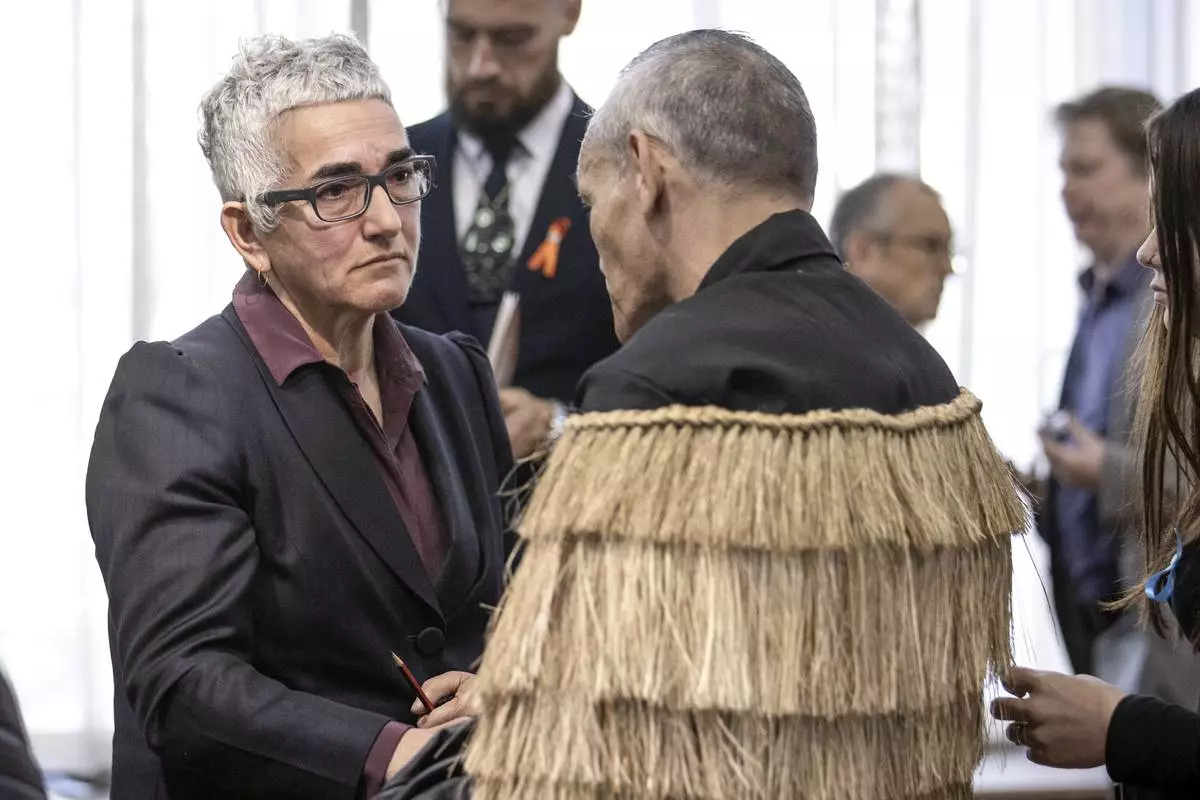
Solicitor-General Una Jagose, left, speaks with survivor Toni Jarvis following Prime Minister Christopher Luxon's "formal and unreserved" apology in Parliament for the widespread abuse, torture and neglect of hundreds of thousands of children and vulnerable adults in care, in Wellington, New Zealand Tuesday, Nov. 12, 2024. (Monique Ford/Stuff via AP)
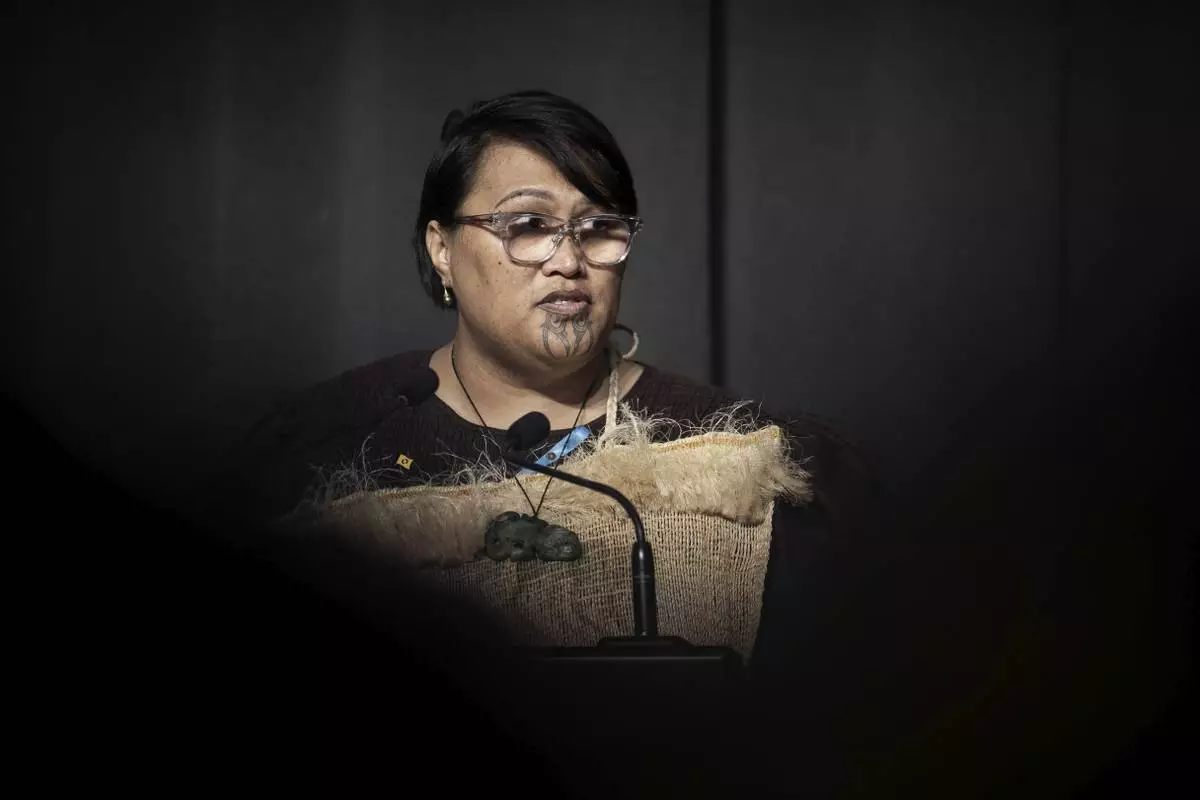
Abuse survivor, Tu Chapman, speaks following New Zealand's Prime Minister Christopher Luxon's "formal and unreserved" apology in Parliament for the widespread abuse, torture and neglect of hundreds of thousands of children and vulnerable adults in care, in Wellington, New Zealand Tuesday, Nov. 12, 2024. (Monique Ford/Stuff via AP)
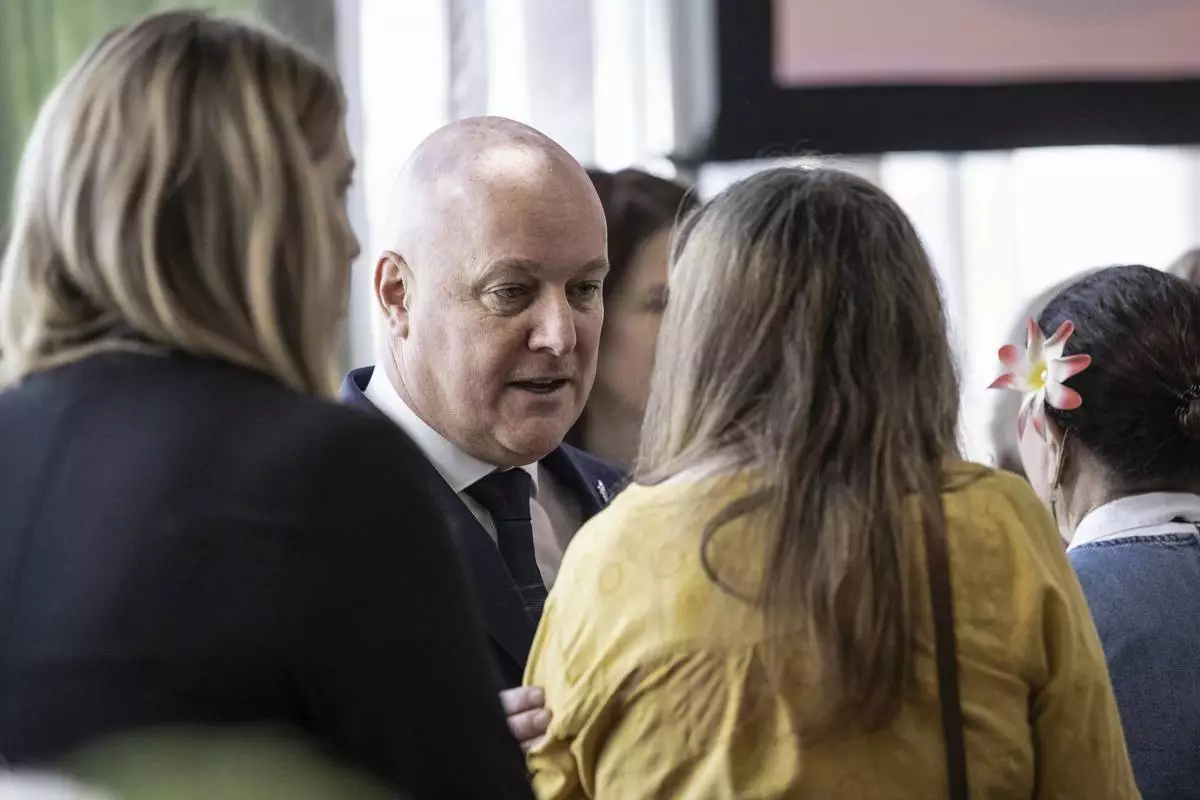
New Zealand's Prime Minister Christopher Luxon, center, greets survivors following his "formal and unreserved" apology in Parliament for the widespread abuse, torture and neglect of hundreds of thousands of children and vulnerable adults in care, in Wellington, New Zealand Tuesday, Nov. 12, 2024. (Monique Ford/Stuff via AP)
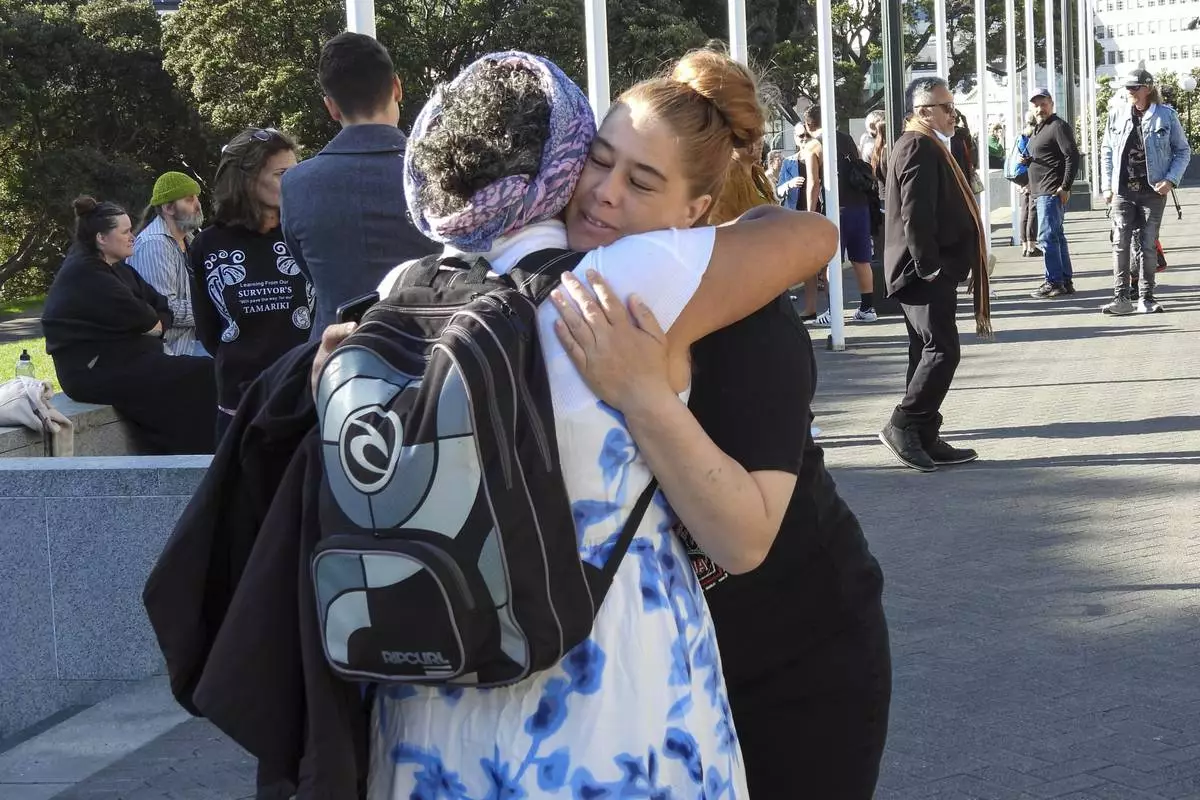
ADDS NAME - Jazmine Te Hiwi, right, embraces a friend as they arrive at Parliament House in Wellington, New Zealand ahead of the apology to the survivors of abuse in state, faith-based and foster care over a period of seven decades, Tuesday, Nov. 12, 2024. (AP Photo/Charlotte Graham-McLay )
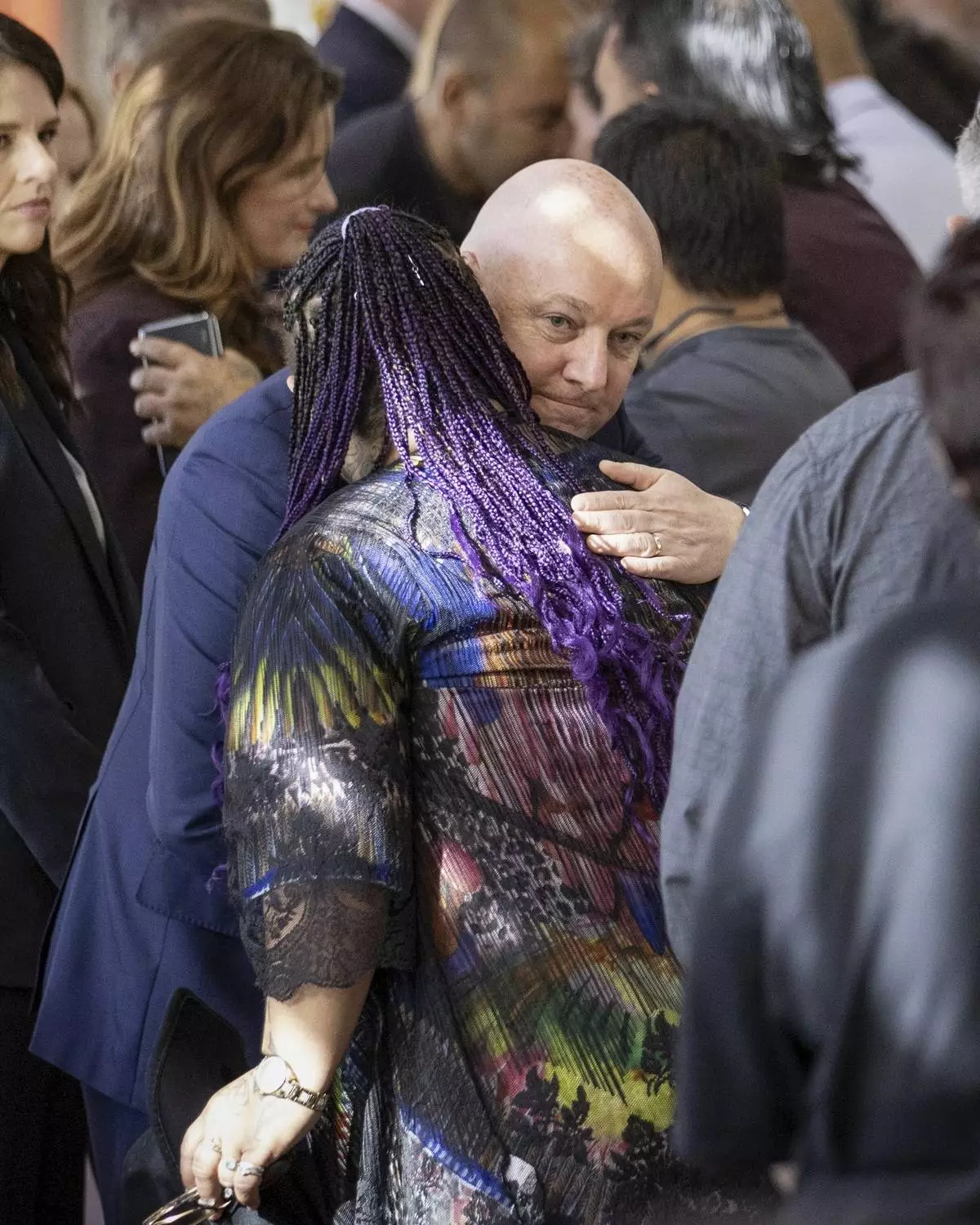
New Zealand's Prime Minister Christopher Luxon embraces a survivor following his "formal and unreserved" apology in Parliament for the widespread abuse, torture and neglect of hundreds of thousands of children and vulnerable adults in care, in Wellington, New Zealand, Tuesday, Nov. 12, 2024. (Monique Ford/Stuff via AP)
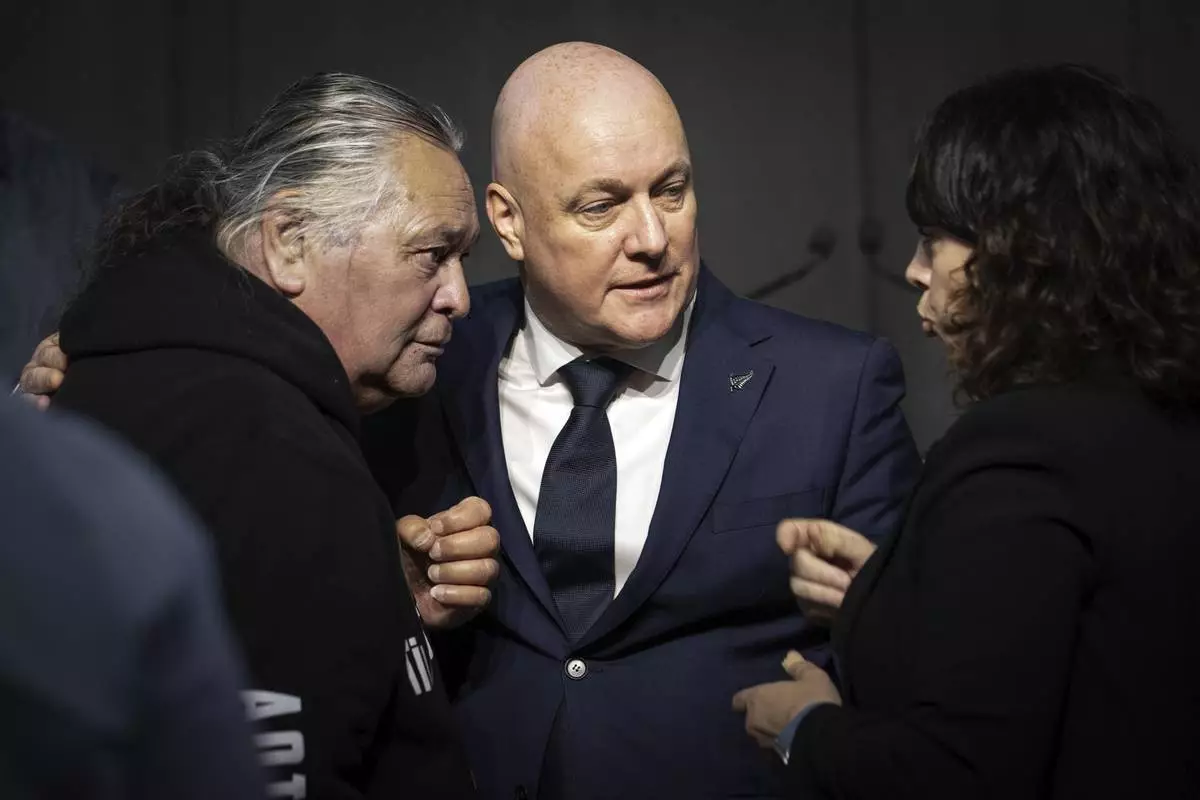
New Zealand's Prime Minister Christopher Luxon, center, talks with survivor Whiti Ronaki, left, and Laura Cherrington following his "formal and unreserved" apology in Parliament for the widespread abuse, torture and neglect of hundreds of thousands of children and vulnerable adults in care, in Wellington, New Zealand Tuesday, Nov. 12, 2024. (Monique Ford/Stuff via AP)
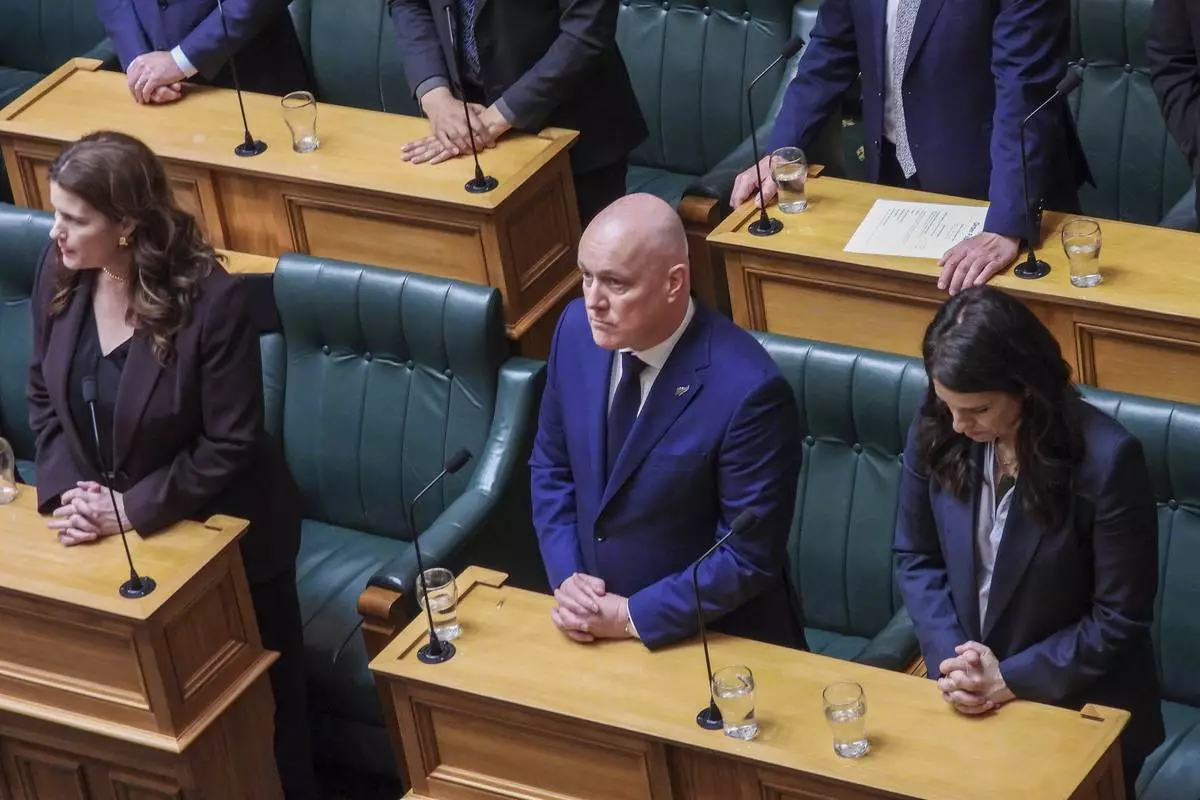
New Zealand Prime Minister Christopher Luxon, center, stands in silence ahead of making a "formal and unreserved" apology in Parliament for the widespread abuse, torture and neglect of hundreds of thousands of children and vulnerable adults in care, in Wellington, New Zealand Tuesday, Nov. 12, 2024. (AP Photo/Charlotte Graham-McLay )
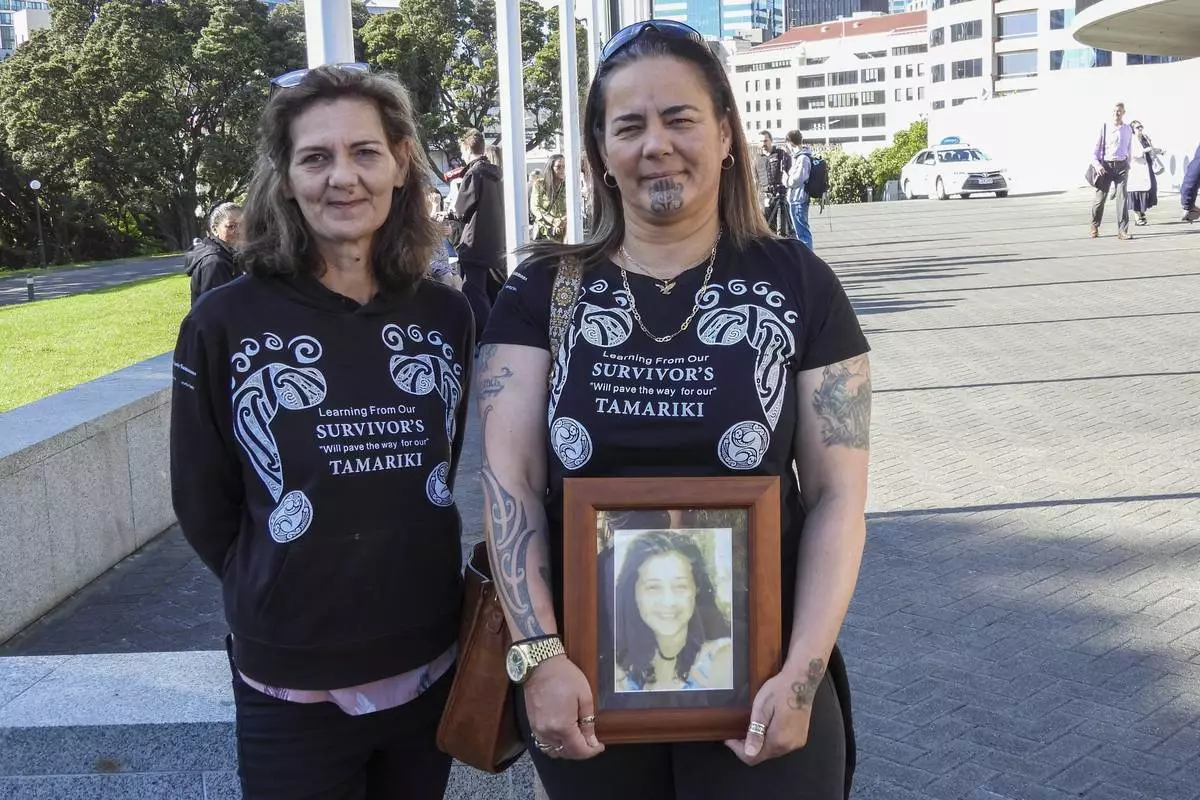
Gina, right, and Tanya Sammons hold a photo of their late sister Alva as they arrive at Parliament House in Wellington, New Zealand, ahead of the apology to the survivors of abuse in state, faith-based and foster care over a period of seven decades, Tuesday, Nov. 12, 2024. (AP Photo/Charlotte Graham-McLay )
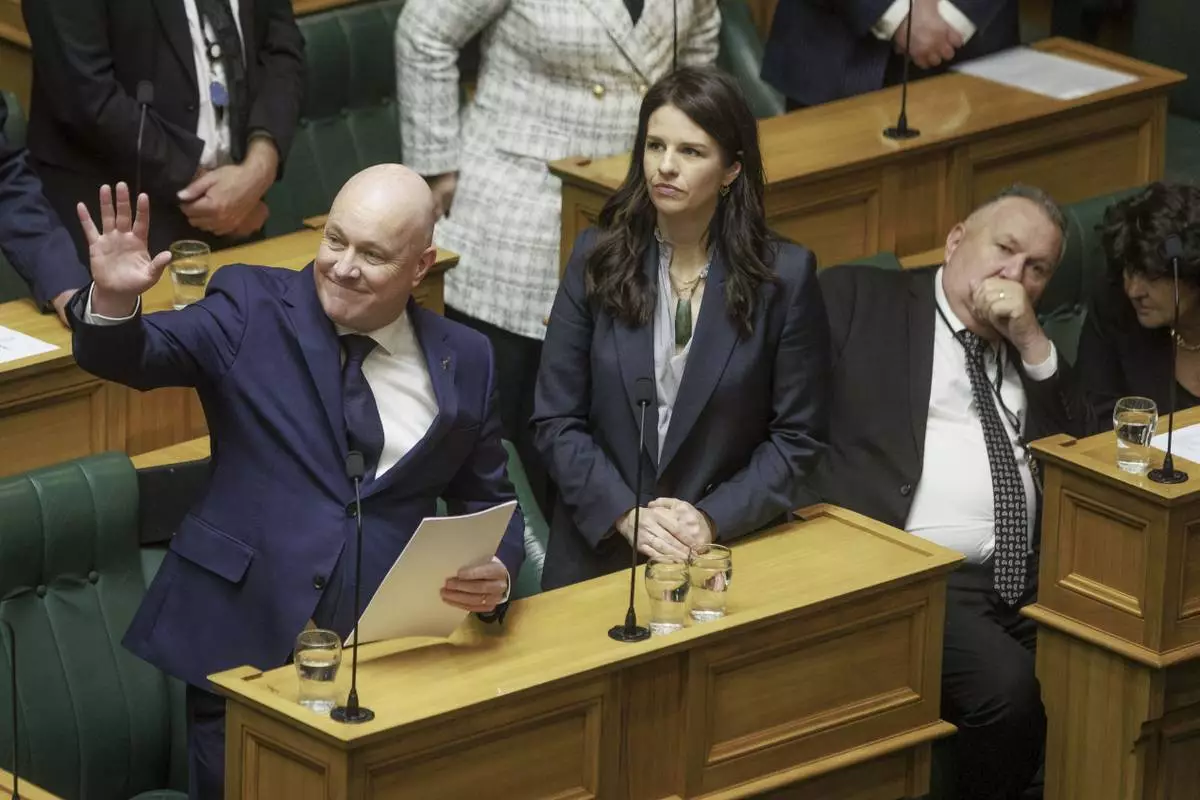
New Zealand's Prime Minister Christopher Luxon gestures to the public gallery as he makes a "formal and unreserved" apology in Parliament for the widespread abuse, torture and neglect of hundreds of thousands of children and vulnerable adults in care, in Wellington, New Zealand, Tuesday, Nov. 12, 2024. (Robert Kitchin/Stuff via AP)
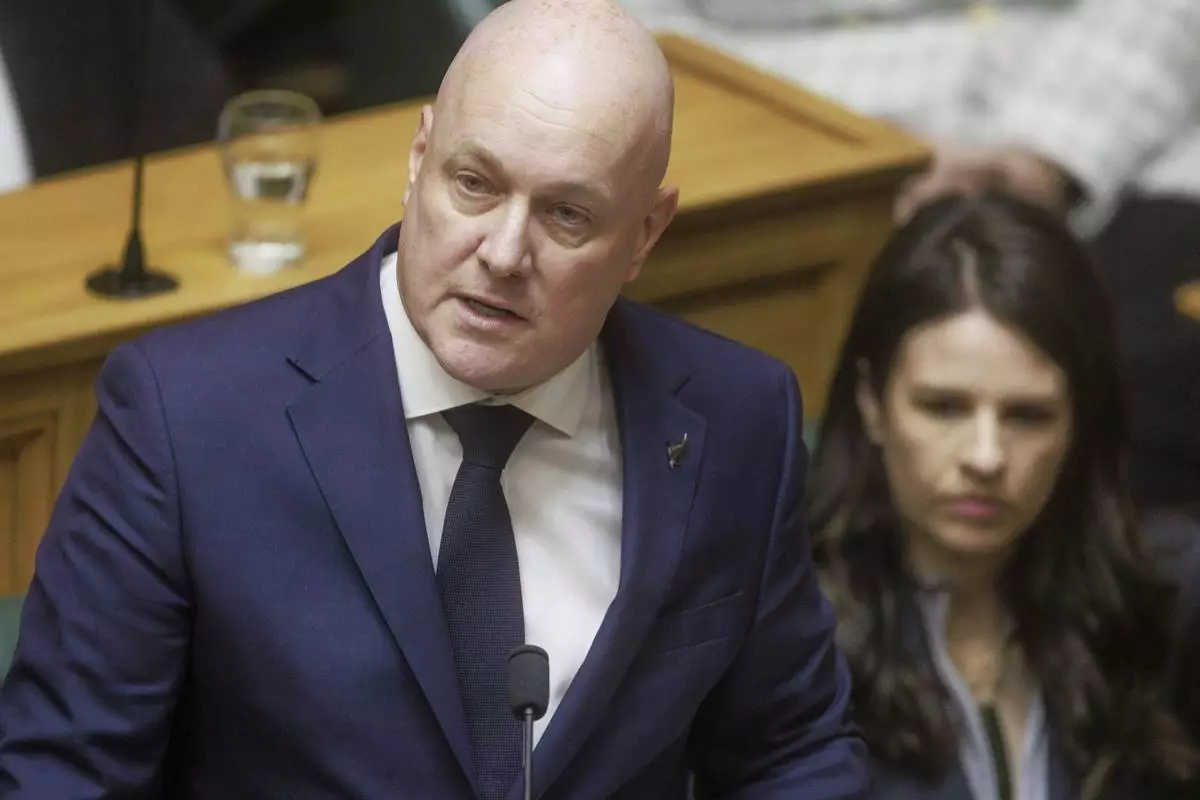
New Zealand's Prime Minister Christopher Luxon makes a "formal and unreserved" apology in Parliament for the widespread abuse, torture and neglect of hundreds of thousands of children and vulnerable adults in care, in Wellington, New Zealand, Tuesday, Nov. 12, 2024. (Robert Kitchin/Stuff via AP)
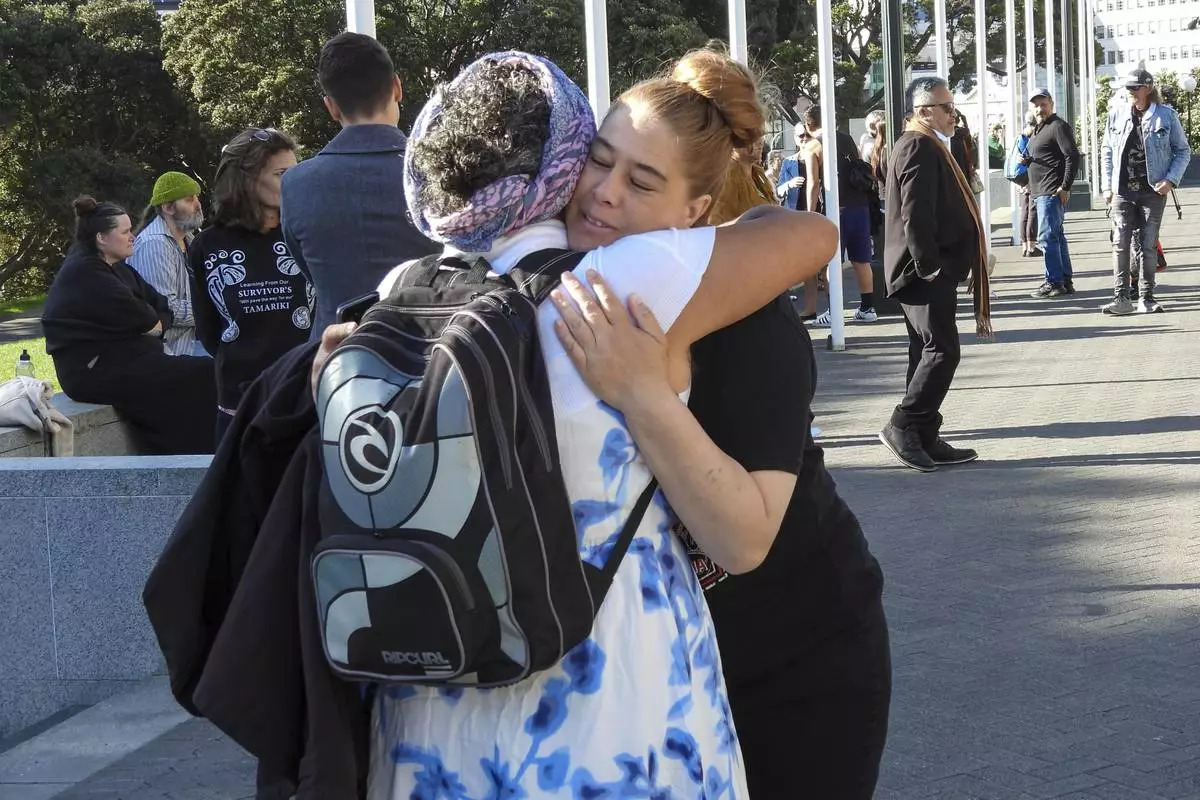
Two women embrace as they arrive at Parliament House in Wellington, New Zealand, ahead of the apology to the survivors of abuse in state, faith-based and foster care over a period of seven decades, Tuesday, Nov. 12, 2024. (AP Photo/Charlotte Graham-McLay )
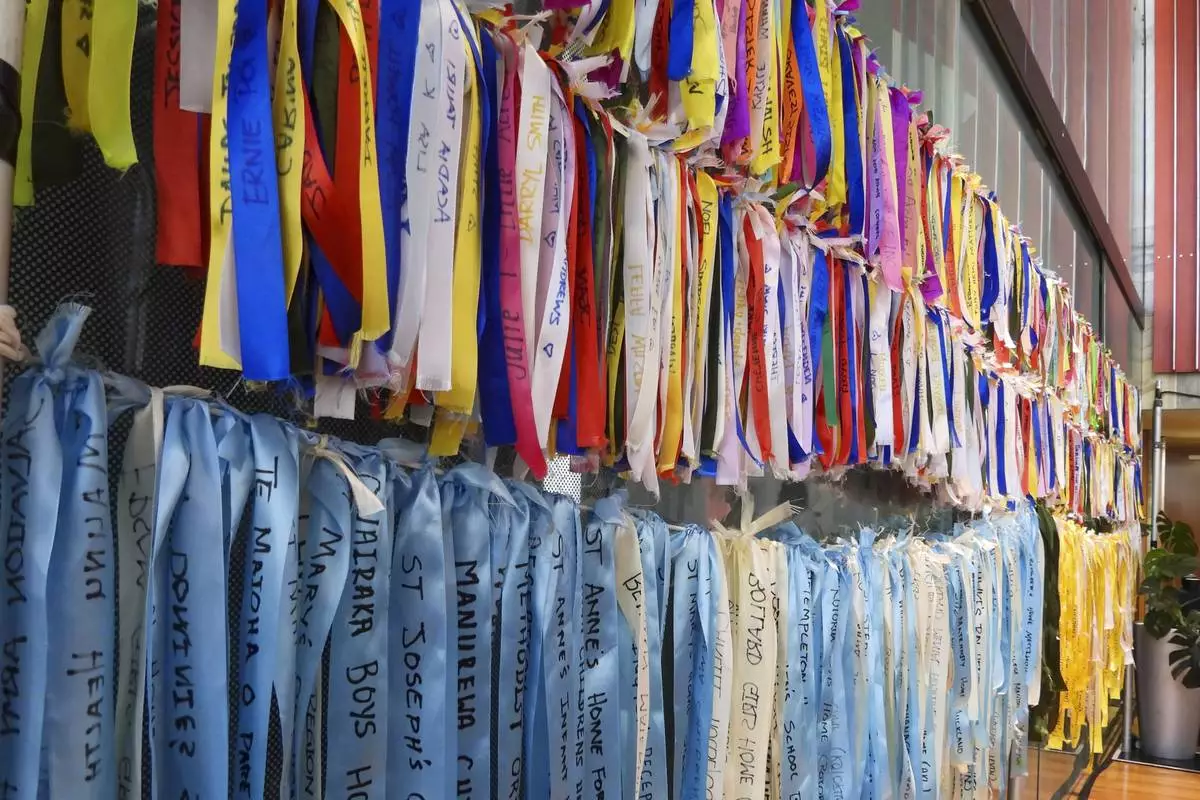
Ribbons are displayed on a wall at Parliament House in Wellington, New Zealand, ahead of the apology to the survivors of abuse in state, faith-based and foster care over a period of seven decades, Tuesday, Nov. 12, 2024. (AP Photo/Charlotte Graham-McLay )
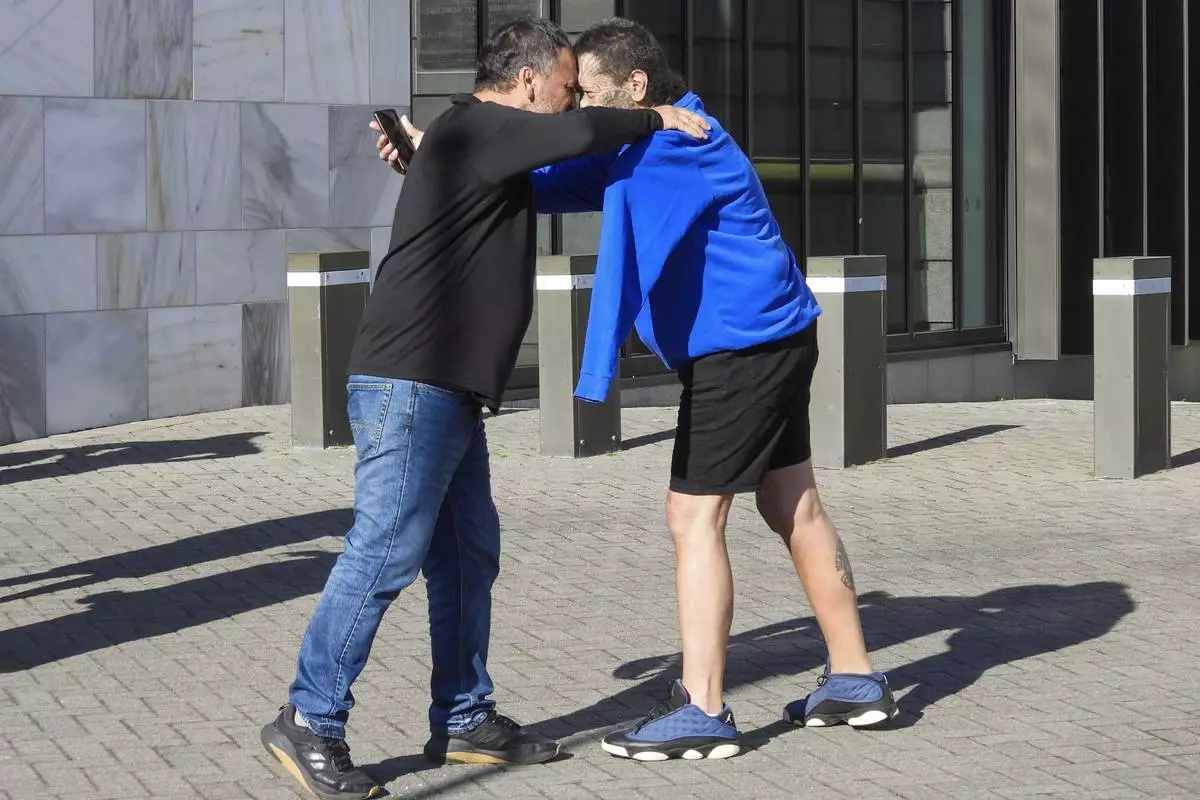
Two men great each other with a hongi, a Maori greeting, as they arrive at Parliament House in Wellington, New Zealand, ahead of the apology to the survivors of abuse in state, faith-based and foster care over a period of seven decades, Tuesday, Nov. 12, 2024. (AP Photo/Charlotte Graham-McLay )
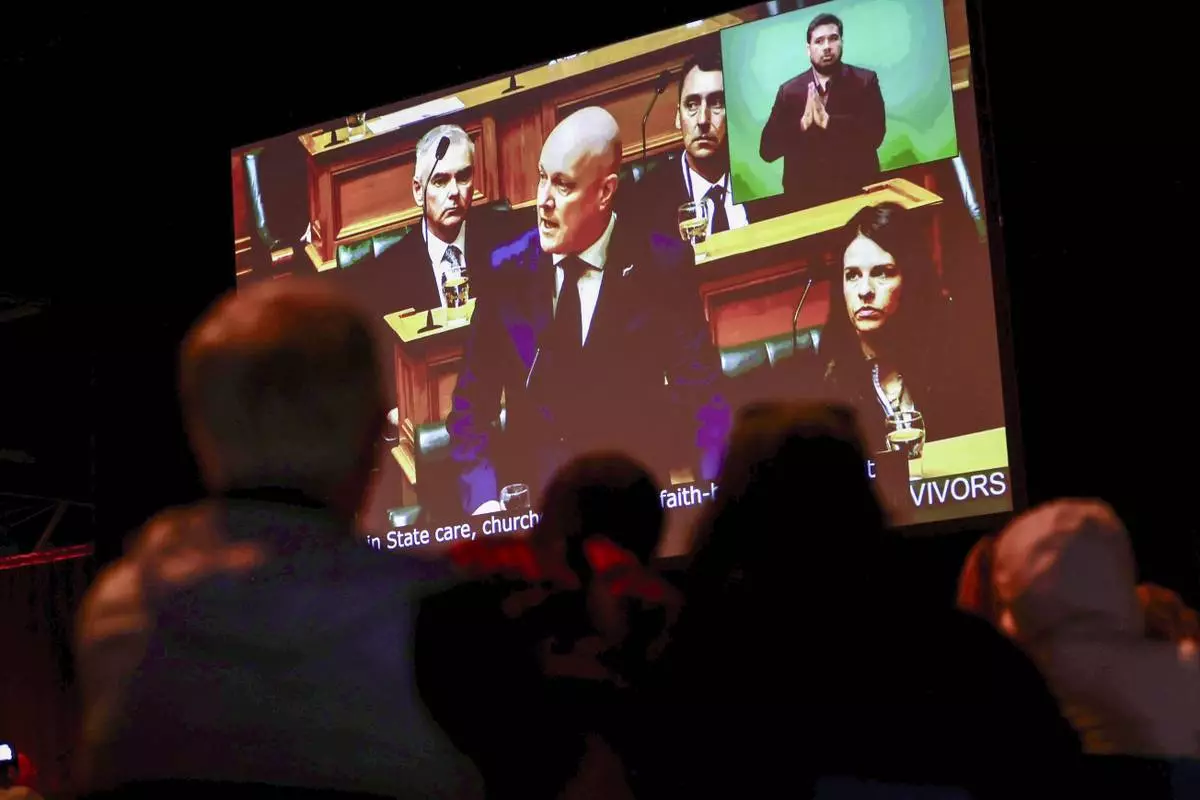
New Zealand's Prime Minister Christopher Luxon is shown on a screen as he makes a "formal and unreserved" apology in Parliament for the widespread abuse, torture and neglect of hundreds of thousands of children and vulnerable adults in care, in Wellington, New Zealand, Tuesday, Nov. 12, 2024. (Lawrence Smith/Stuff via AP )


